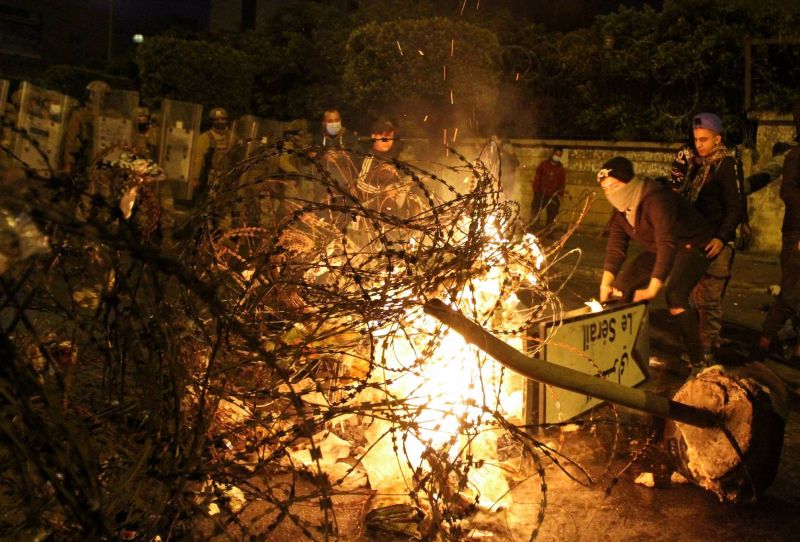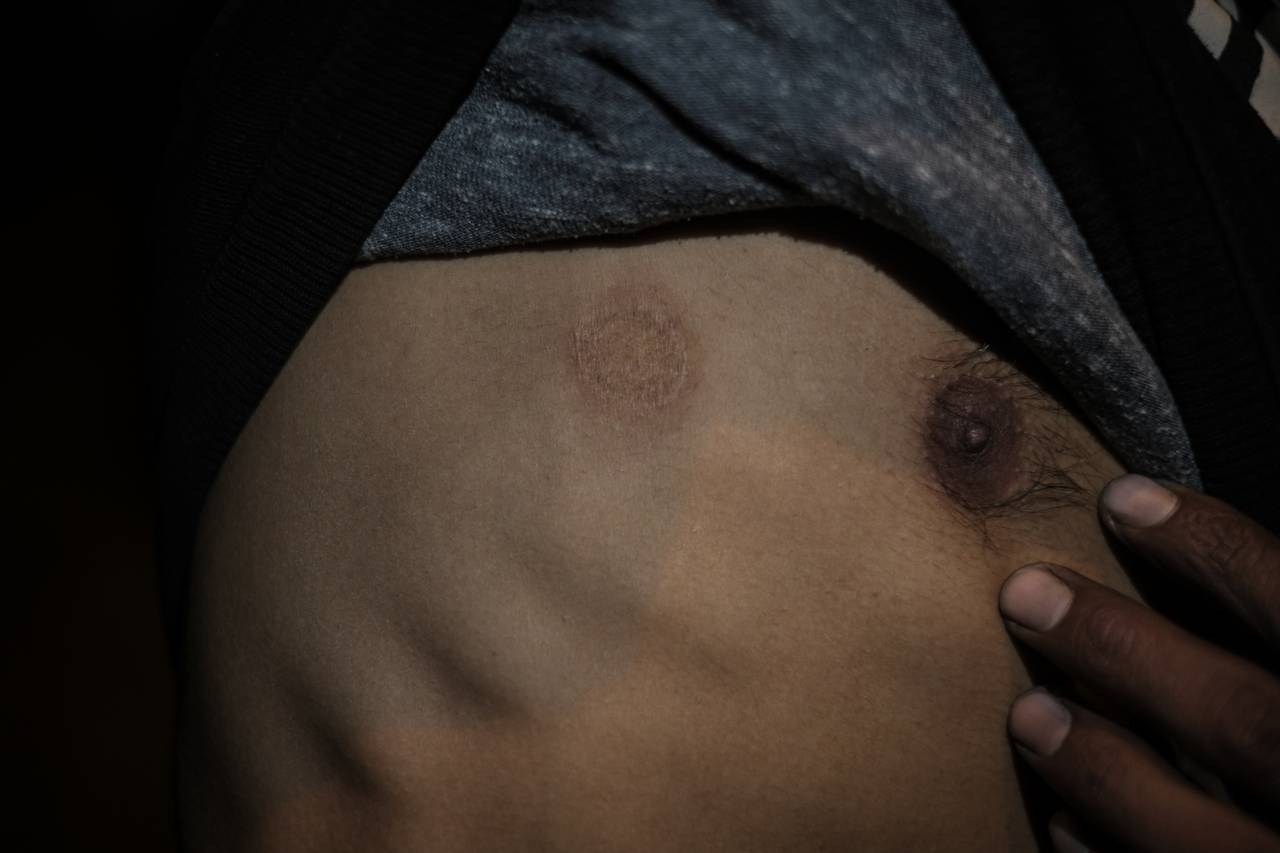
Demonstrators light a fire near Tripoli’s governmental serail on Tuesday during a protest against the COVID-19 lockdown and worsening economic conditions. (Credit: Omar Ibrahim/Reuters)
TRIPOLI/BEIRUT — Tensions flared for the second night running in Lebanon’s second city of Tripoli as security forces once again cracked down on protests against the COVID-19 lockdown.
In the early evening, around 200 protesters gathered outside the serail, the seat of the Governorate of North Lebanon, to express anger over deteriorating living conditions under the restrictive measures imposed against the pandemic.
Demonstrators shouted that they’re struggling to provide for their families, pay rent and put food on the table, a correspondent for our sister publication L’Orient-Le Jour reported. Under lockdown rules, residents are required to stay home — a difficult task for those who rely on daily wages to survive.
Protesters tried to remove the barbed wire fence outside the government building and set alight a car, prompting the Lebanese Army to force them back from the site, the correspondent added.
The troops pushed onward to Al-Nour Square — the site of last night’s violent confrontations — using tear gas and other munitions to empty the plaza, an iconic site of the Oct. 17, 2019, uprising against the ruling class.
The Lebanese Red Cross announced it had transported six people wounded in the confrontations to local hospitals.
As the night wore on, sporadic confrontations between small groups of protesters and soldiers moved away from Al-Nour Square to the inner neighborhoods of the city.
In the square, there was only a light army deployment, following the crackdown earlier.
One protester, wounded by rubber-bullet fire from the army, told L’Orient Today that he would rather “die with pride than live in despair.”
“We live in oppression and injustice. I’m 25 years old and I don’t know how to read or write; I have an illness that needs treatment,” he added.
 A protester shows where the Lebanese Army shot him with a rubber bullet. (Credit: João Sousa/L’Orient Today)
A protester shows where the Lebanese Army shot him with a rubber bullet. (Credit: João Sousa/L’Orient Today)
“People here are fighting with more enthusiasm because they are poor. As a result of the lockdown, people are angrier — the lockdown stuck a finger in the wound,” another demonstrator said.
The owner of a building next to Al-Nour Square dubbed the actions as vandalism and destruction, saying the protesters had tried breaking into a number of properties.
The protests come on the heels of the security crackdown against similar demonstrations the night before, which left 41 people injured — 12 of whom required hospitalization — according to the Lebanese Red Cross.
Already reeling under the worst financial and economic crisis in decades — which has pushed over half the country into poverty, according to estimates from the United Nations’ ESCWA agency — residents elsewhere in the country have also taken to the streets in recent days.
Earlier Tuesday, demonstrators briefly blocked Beirut’s Corniche al-Mazraa thoroughfare as well as the highway leading south from the capital at Jiyyeh. More road blockings were reported in the evening in Saida, Aley, Akkar and the Bekaa.
While fears have risen over the public health ramifications of the COVID-19 pandemic, which killed a record 73 people in the past day, the state’s inability to sustain social safety nets during the lockdown has called into question the restrictive measures, including a 24-hour curfew.
The government vowed during its announcement of the initial lockdown on Jan. 7 that it would distribute LL400,000 each to the most vulnerable families in the country, tabulated as numbering 280,000. The aid, to be distributed by the Lebanese Army, has not arrived.
Army spokesperson Col. Elias Aad told L’Orient Today last week that he expects the funds would not be doled out until the end of the lockdown, currently set for Feb. 8.